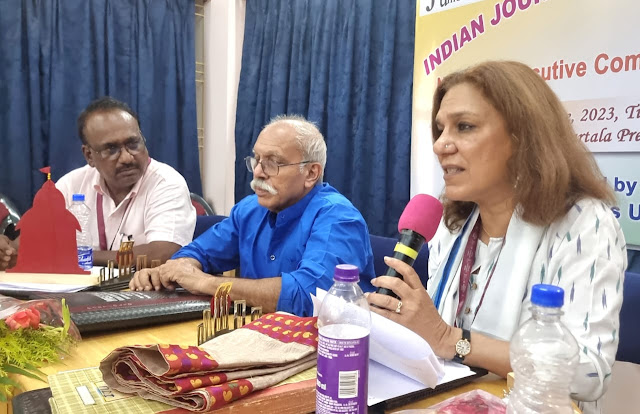KalimNews, April 14, 2025, Kolkata: The Indian Journalists Union (IJU) has issued a strong condemnation regarding the recent amendments made to the Right to Information (RTI) Act through Section 44(3) of the Digital Personal Data Protection (DPDP) Act, 2023. These changes, which alter Section 8(1)(j) of the RTI Act, impose a blanket exemption on the disclosure of personal information, thus removing a vital safeguard that once ensured transparency in matters of public accountability. The IJU has called for the immediate repeal of these amendments, emphasizing the need to restore the RTI Act as an essential tool for democracy and press freedom.
The RTI Act has long been a cornerstone of journalistic work in India, empowering investigative reporting and playing a critical role in exposing corruption and ensuring that public institutions remain accountable to the citizens they serve. However, by eliminating the provision that allowed for the disclosure of personal information when it was deemed to be in the larger public interest, the amendments introduced by the DPDP Act are seen as a direct attack on press freedom. The IJU warns that these changes create a chilling effect on the ability of journalists to access crucial information needed to hold power to account.
In a statement, IJU President Geetartha Pathak, a former member of the Press Council of India, and Secretary-General Sabina Inderjit, who also serves as the Vice President of the International Federation of Journalists (IFJ), expressed concern over the detrimental impact of these amendments on freedom of expression. “These amendments not only undermine the fundamental right to freedom of expression under Article 19(1)(a) of the Constitution but also restrict the press’s ability to act as a watchdog over the government and powerful interests,” they said.
The IJU also raised alarm over the lack of any exemptions for journalistic work under the DPDP Act, as well as the establishment of a government-controlled Data Protection Board that would have sweeping powers to impose hefty penalties. This, the union argues, could result in the weaponization of data protection laws against media professionals, activists, and citizens seeking greater transparency. The IJU further pointed out that such provisions are at odds with global best practices, where data protection and transparency laws coexist to balance the need for privacy with the public’s right to know.
In solidarity with civil society groups, RTI activists, and opposition leaders who have also raised concerns about the erosion of transparency, the IJU has called on the Union Government to repeal Section 44(3) of the DPDP Act. The union urges the government to engage in comprehensive consultations with stakeholders to ensure that any future data protection laws strengthen, rather than undermine, democratic rights. The RTI Act, according to the IJU, must remain a beacon of accountability, with the press free to perform its vital function without fear of reprisal.








